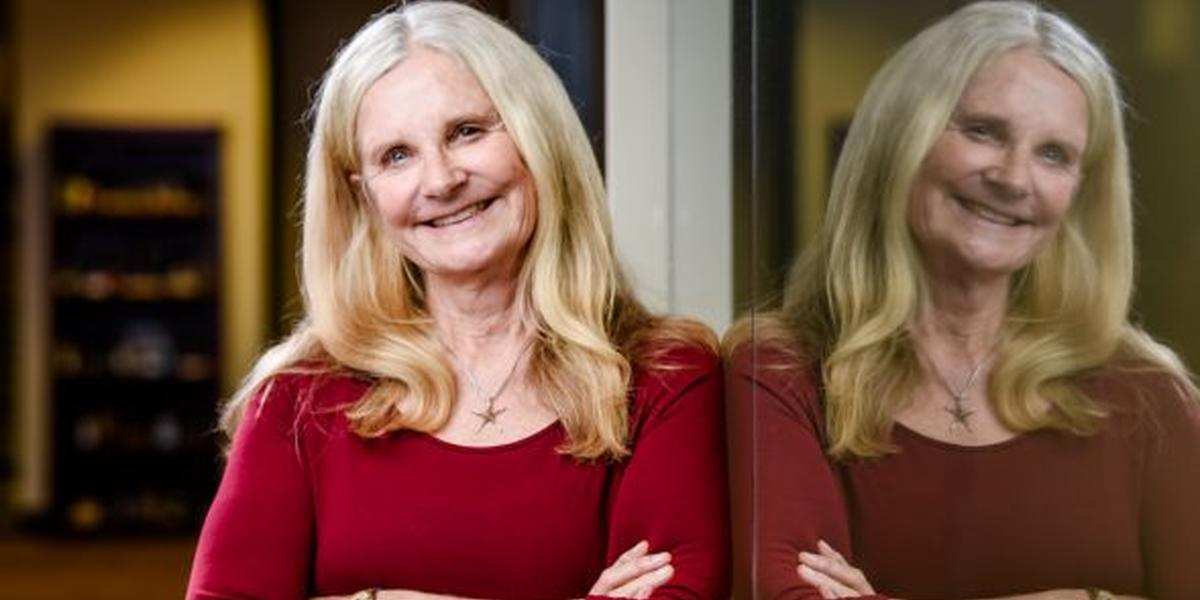Effecting change on multiple fronts
Lynn Hovda, ’85 DVM, ’83 BS, DACVIM, is dedicated to animal and human health, and to research excellence.

Lynn Hovda, ’85 DVM, ’83 BS, DACVIM, is dedicated to animal and human health, and to research excellence.
Lynn Hovda, ’85 DVM, ’83 BS, DACVIM, wanted to be a veterinarian “from square one.” She’s done just that, using her degrees from the University of Minnesota College of Veterinary Medicine (CVM) and other institutions in myriad ways, all of which exemplify her dedication to animal and human health and to research excellence.
Hovda has worked as a pharmacist and veterinarian, directed equine medicine at a veterinary hospital, and served as director of veterinary medicine for PROSAR International Poison Center and for the Minnesota Regional Poison Center and Hazard Information. She’s published scores of scientific articles and is active in professional, scientific, and lay organizations.
Today, Hovda is busier than ever. Since 1994, she’s been chief commission veterinarian at the Minnesota Racing Commission (MRC), which regulates horse racing and card playing in Minnesota. She advises on proposed rule changes regarding medications and the health and welfare of horses, develops training manuals and operating procedures, supervises the detention barn, examines horses, assists with research, and oversees all veterinarians at the track.
Working together opens so many doors.
Lynn Hovda, ’85 DVM, ’83 BS, DACVIM
It’s a role that fits Hovda to a T. An ardent proponent of research, she’s worked with CVM research scientists on projects important to the racehorse community and has connected both groups. For example, research on equine musculoskeletal diseases and heart conditions from the lab of Molly McCue, DVM, MS, PhD, associate dean of research at the CVM, has provided valuable insights into the care and treatment of equine athletes. “Working together opens so many doors,” Hovda says.
Hovda is also director of veterinary medicine for two affiliated companies she cofounded in 2004. The first, SafetyCall International, is a nationally recognized leader in product safety and clinical toxicology. It operates the world’s largest 24/7 human and animal poison control center, providing product manufacturers and consumers with immediate access to critical health, safety, and medical information. It also provides manufacturers with support in case of adverse events.
Pet Poison Helpline handles about 300 cases a day.
Lynn Hovda, ’85 DVM, ’83 BS, DACVIM
The second, Pet Poison Helpline (PPH), helps veterinarians and animal owners seeking care for pets that may have come into contact with something poisonous. “PPH handles about 300 cases a day,” says Hovda. “We’re open 24/7 and get calls from all over North America and Australia.”
SafetyCall and PPH share office space in Minneapolis and have 25 veterinarians and 75 certified veterinary technicians on staff, as well as toxicologists, criticalists, pharmacists, and other veterinary and human specialists.
“Our work is broad,” says Hovda, noting that both companies are licensed by the boards of pharmacy, medicine, and veterinary medicine. “Animals, people, and the environment really are all one.”
Every step of the way, Hovda’s commitment to the CVM has been unwavering. She’s been an assistant adjunct professor for years and currently teaches courses in toxicology and advanced equine electives. She helps students find scholarships, internships, externships, residencies, and jobs. She also keeps CVM researchers apprised of grant opportunities, including those available through MRC, which is mandated by the state legislature to dedicate a percentage of income to equine research at state universities.
The CVM is on the front lines whether you’re interested in small or large animals. Its research is second to none.
Lynn Hovda, ’85 DVM, ’83 BS, DACVIM
“The CVM is on the front lines whether you’re interested in small or large animals,” says Hovda. “Its research is second to none. Whatever students’ interests are, the CVM helps. It’s our responsibility to teach students everything we possibly can.”
Hovda and her family share their rural home with horses, cats, and dogs, including a yellow Labrador puppy that Hovda calls “exuberant.” And while Hovda is at a point in her career when some might consider dialing back, she has no plans to do so.
“Recently my daughter said ‘Mom, you’re never going to quit, are you?’” says Hovda. “Why would I? I’m blessed to have work I love, and I’m doing what I want to do.”